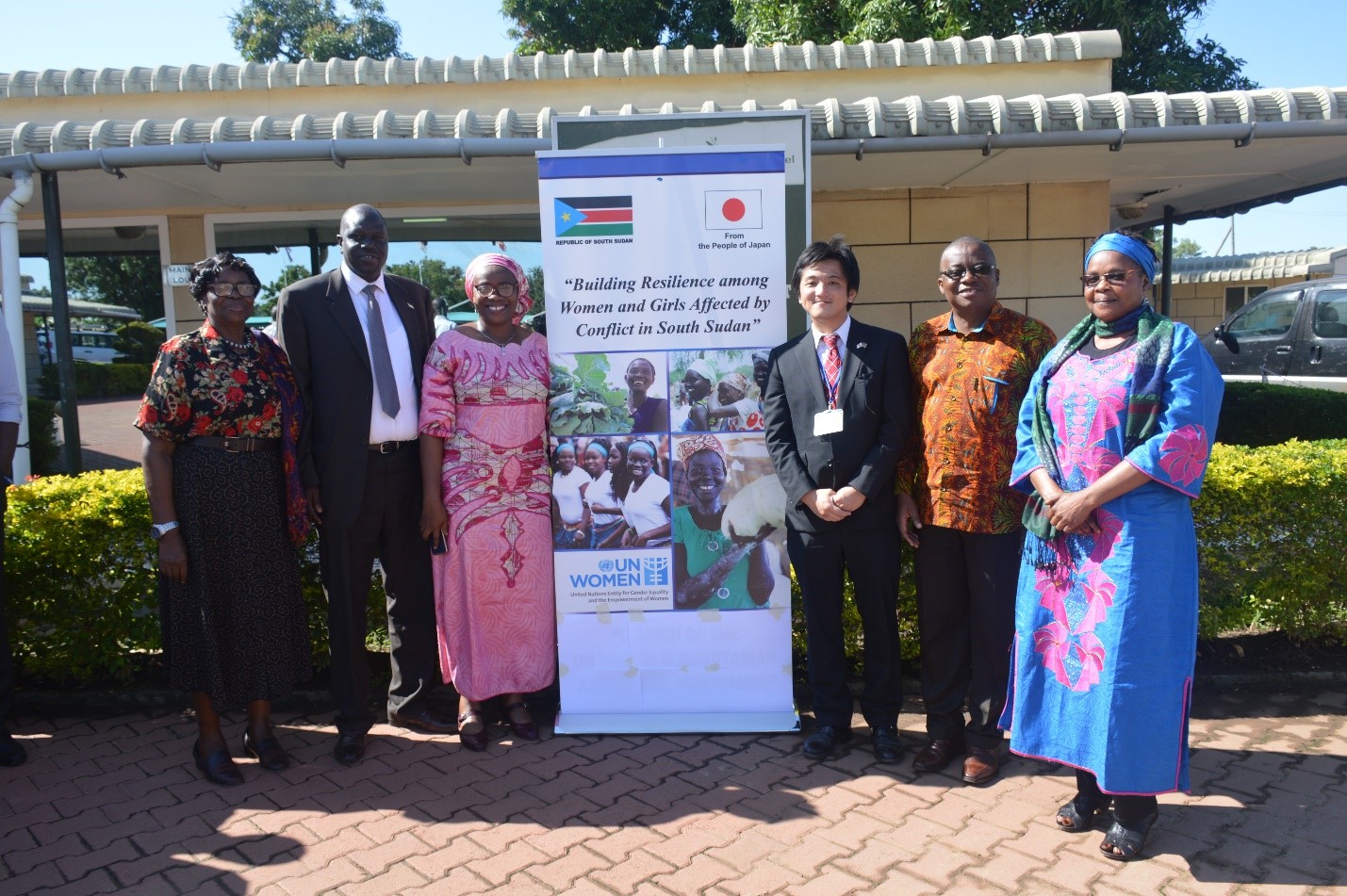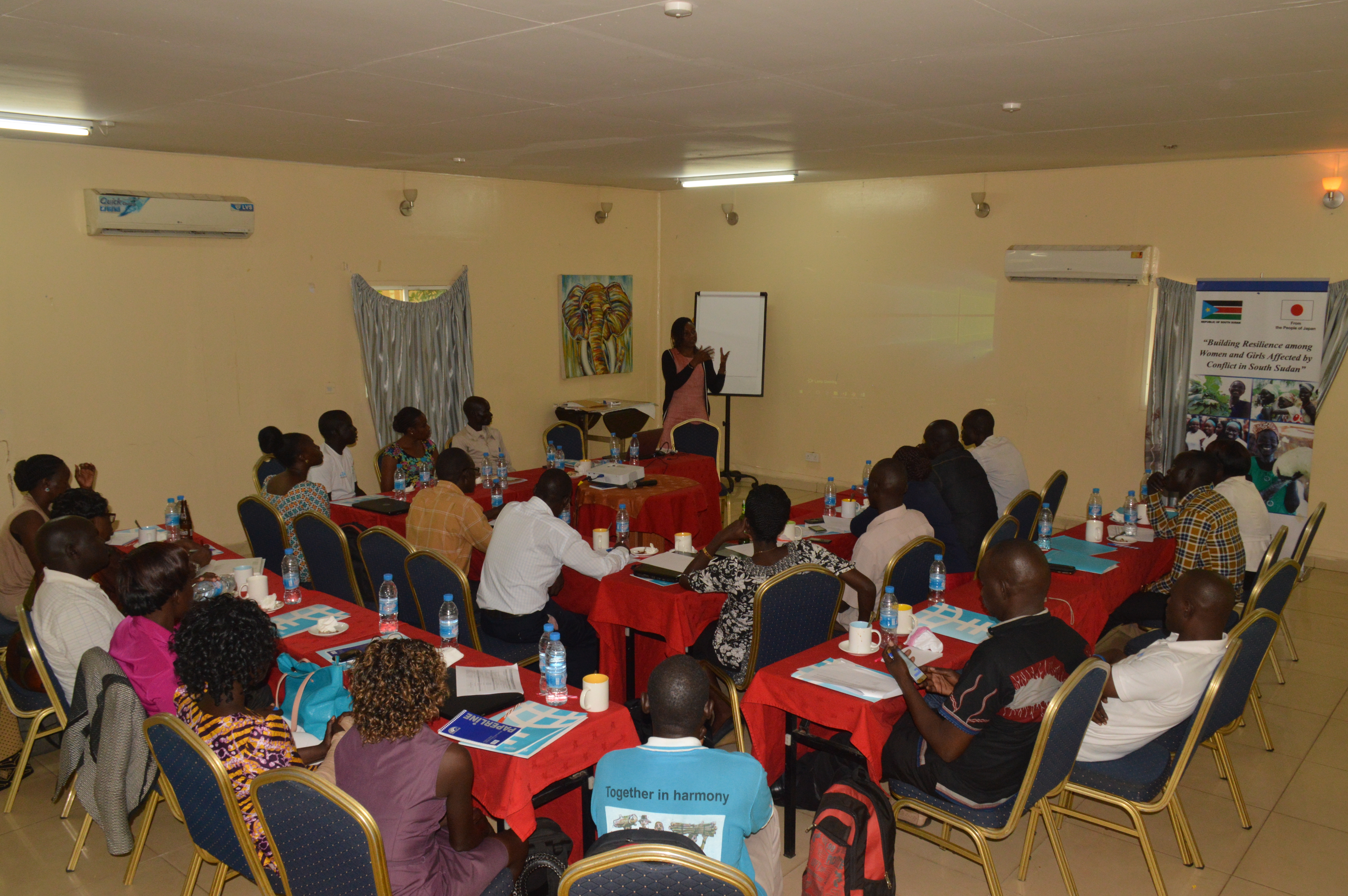Strengthening humanitarian assistance for women and girls in South Sudan
Date:


On 23rd August 2017, UN Women with funding from the Government of Japan carried out capacity strengthening workshop for 30 practitioners from leading Humanitarian Non-Governmental Organizations partners working with UN Women in South Sudan. Since April 2015 UN Women has been implementing a Humanitarian Assistance Programme that has made substantial contribution to the self-reliance and resilience of more than 7,500 conflict affected women and girls in Juba, Mingkaman and Nimule.
Hon. Gatwech Peter Kulang, Undersecretary of the Ministry of Humanitarian Affairs and Disaster Management, Mr Takanobu Nakahara, First Secretary (Development Cooperation) of the Embassy of Japan in South Sudan, and Mr Lansana Wonneh, UN Women Deputy Country Representative participated in the opening ceremony of the training aimed at building the resilience of women in the country.
The humanitarian assistance programme initiative focused on livelihood enhancing activities including vocational, entrepreneurship, functional literacy and basic computer application skills training; and improved access to productive resources including cash grants and start-up kits. It also built the capacity of the women to prevent and respond to gender based violence.
The second phase of the programme that is currently running from April 2017-March to 2018, will build on results already achieved, sustainably improve livelihoods and prevent and respond to gender based violence in the above-mentioned three targeted areas.
Hon. Kulang emphasized the commitment of the Government of South Sudan to support the work of UN Women as promotion of gender equality is a key national commitment.” He quoted that late John Garang that ‘Women are the most marginalized among the marginalized in South Sudan’. He further expressed his concerns and expectations of the newest African country. “In 2016, we expected peace would return to South Sudan following the signing of ARCSS. Hopes were shuttered when violence occurred in July 2016 adding more suffering to women and girls”.
It’s to this regard that the Humanitarian Assistance Programme (HAP) is vital in reducing the impact of insecurity on women by enhancing their livelihoods, GBV prevention and promoting peaceful co-existence between IDPs and the host communities. He encouraged the participants to use the skills gained for transparency and accountability while while delivering tangible interventions to conflict affected women and girls.
Speaking on behalf of the Embassy of Japan in South Sudan, Mr Takanobu Nakahara stated that "Improving gender equality and continuous empowerment of women are important priorities for the Government of Japan and we strongly support the promotion of Human Security, and women and girls are at the heart of Human Security. It is women and girls who should be protected the most because they are the worst affected by crises. I hope this training will build the capacities of partners who will then build the capacities of women and others. When you provide services for a woman, under South Sudan current culture, you provide services to the whole household and community”.


The UN Women Deputy Country Representative, Mr Lansana Wonneh thanked the Government of Japan for the support which has contributed to filling the critical gender gap in humanitarian action in South Sudan. He was confident that the three-day training will not only strengthen partners’ capacity but, it will also elicit from the stakeholder, the lessons learned and good practices to scale-up going forward.